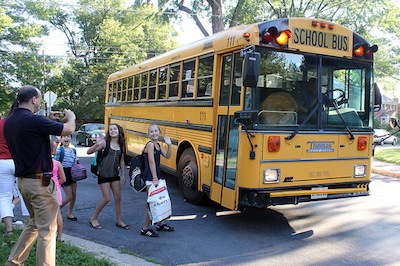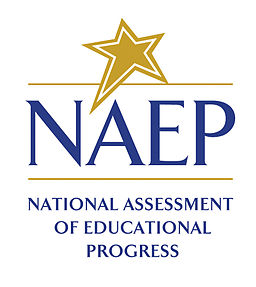Education, News

What are the Different Kinds of Colleges in the U.S.?
Each country has its own model for education. In the United States there are a few types of colleges: public, private and for-profit. Within those categories, there are different kinds of colleges such as two- or four- year universities or online schools. Private Many colleges or universities are privately owned. Some have

Adult Education: What Are The Benefits?
Adult education has always been an important part of the education system in the United States. States first took the lead in adult education, and the first federal legislation supporting these programs was passed in 1964. Since, the government has worked with states to continue expanding opportunities for adults who wish to

What are Dual Language Immersion Programs?
Today, Dual Language Immersion (DLI) programs are an increasingly popular model for bilingual education in K-12 education. In 2000, U.S. Education Secretary Richard Riley stated, “We need to invest in these kinds of programs… In an international economy, knowledge, and knowledge of language, is power.” Since then, the number of DLI

Which Foreign Language Should You Learn?
When it comes to deciding on a foreign language to learn, there are often many variables that come into play. Depending on the circumstances and motivations underlying the decision to learn another language, individuals will weight certain factors differently. Today, many high schools and liberal arts colleges require a certain

Why Do High Schools Need College Counselors?
Many students aspire to attend college, but not all of them are ready for the challenges of applying, attending or paying for postsecondary education. At a time when getting into college seems more difficult each year, there is a shortage of college and guidance counselors due to budget cuts and other

Does Parent Involvement in School Help Students Succeed?
If you have a child attending school, getting involved in his or her learning is a must. Research by various groups over the past 3 decades points to the positive impact a parent’s relationship with school has on a child. From research groups, including the National Coalition for Parent Involvement (NCPI), to

Should Cell Phones Be Allowed In The Classroom?
Cell phones are everywhere and have undeniably become an integral part of everyday life. Everyone from teens to seniors seems to have one on their person — even toddlers know how to use them for games and entertainment! Just a few years ago, cell phones were simply used to speak with someone.

Magnet Schools: What Are They?
Magnet schools came into being at the end of the 1960s and early in the 1970s as an alternative to busing children to school during the desegregation movement. The intent was to combine various cultural and ethnic groups from one area together in one school. This purpose has since changed.

The Importance Of School Breakfast Programs
No child should ever go to school hungry. Yet, according to the Food Research and Action Center (FRAC), nearly 16 million children live in homes struggling with hunger. In a country where food is not scarce, that number is far too high. In order to make sure students are fed, it is essential

Using Education to Fight the Skills Gap
A problem has been looming in the United States industrial engine since the 1990s. According to author Gary J. Beach, it has widened considerably since 2000 and continues to affect the growth and strength of the economy. This has been named the “skills gap.” It has been examined, analyzed and

Vocational Training: America Needs to Lose The Stigma
If you live in North America, chances are you are hoping to attend college. It is, as President Barack Obama campaigned in 2008, something everyone hopes for themselves and/or their children to achieve. Yet, there is major problem in this approach – It ignores the fact that not everyone wants

Boost Children’s Chances of Doing Well in School by Keeping Books at Home
Did you know that the more books you include in your home library, the greater determination your child will have to do better at school? It was recently claimed that parents can improve their children’s school results by simply providing them with regular access to books. This claim basically contradicts

Are We Preparing Students To Be Employees and Entrepreneurs In America’s Economy?
In 2006, J. Willard Marriott, Jr., Chairman and CEO of Marriott International, Inc. stated, “Our nation’s long-term ability to succeed in exporting to the growing global marketplace hinges on the abilities of today’s students.” He was commenting on the need for two parties two work together to ensure the economic

National Assessment of Educational Progress – What does it really tell us?
The National Assessment of Education Progress (NAEP) started in 1964. The first voluntary assessments, however, did not take place until 1990. NACEP is the largest nation-wide testing and assessment of the knowledge base of students in the United States. The Congress has mandated this project. The administrator is the National
